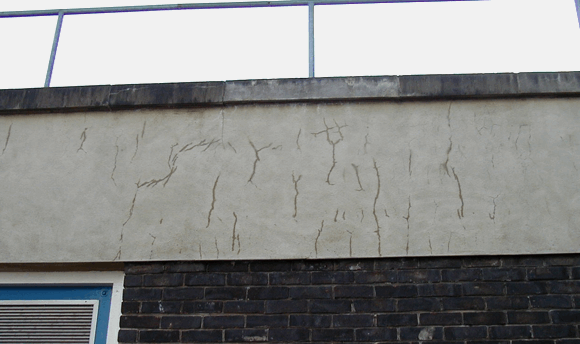Bob de Vekey1, Andrew Sutherland2 and Alan Ferguson3
- R.C. de Vekey, Associate techical director, Masonry Centre in Construction Division, BRE Ltd., Watford, UK, WD25 9XX, devekeyb@bre.co.uk
- A Sutherland, Researcher, Masonry Centre in Construction Division, BRE Ltd., Watford, UK, WD25 9XX, sutherlanda@bre.co.uk
- W A Ferguson, Consultant Engineer, Masonry Centre in Construction Division, BRE Ltd., Watford, UK, WD25 9XX, fergusonwa@bre.co.uk
ABSTRACT
Mortar plays a vital role in the overall performance of masonry walls but one of the key performance parameters is never measured nor taken account of in design – that of ‘total shrinkage’. In the past it was recognised that if mortars had a high drying shrinkage they could give problems especially if used as render mixes. If render is applied to a substrate and then suffers significant shrinkage it can craze or crack leading to durability and rain penetration problems. Unfortunately the standard test only measures drying shrinkage from when the mortar is hardened sufficiently to make a rigid test bar and this omits plastic shrinkage which occurs from the moment that the mortar is applied to a substrate such as render on a wall or mortar to a masonry unit. While it is accepted that some plastic shrinkage will be allowed for in load-bearing walls by consolidation of the work (downward shrinkage) as it is built, this process can not cope with all situations and leads to underperformance of bedding and pointing mortars. This led to the development of a, visually striking, test method for total shrinkage which has been used to study its effect on durability and bond but was found to be unsatisfactory for producing reliable quantitative data. The test described in this paper is a reengineered version which has shown to give reproduceable, repeatable and quantitative behaviour. The initial evaluation trials, using mortars made with two sands and applied to two background materials, are described.
Key words: mortar plastic drying shrinkage test-method bond durability rain
MORTAR03



